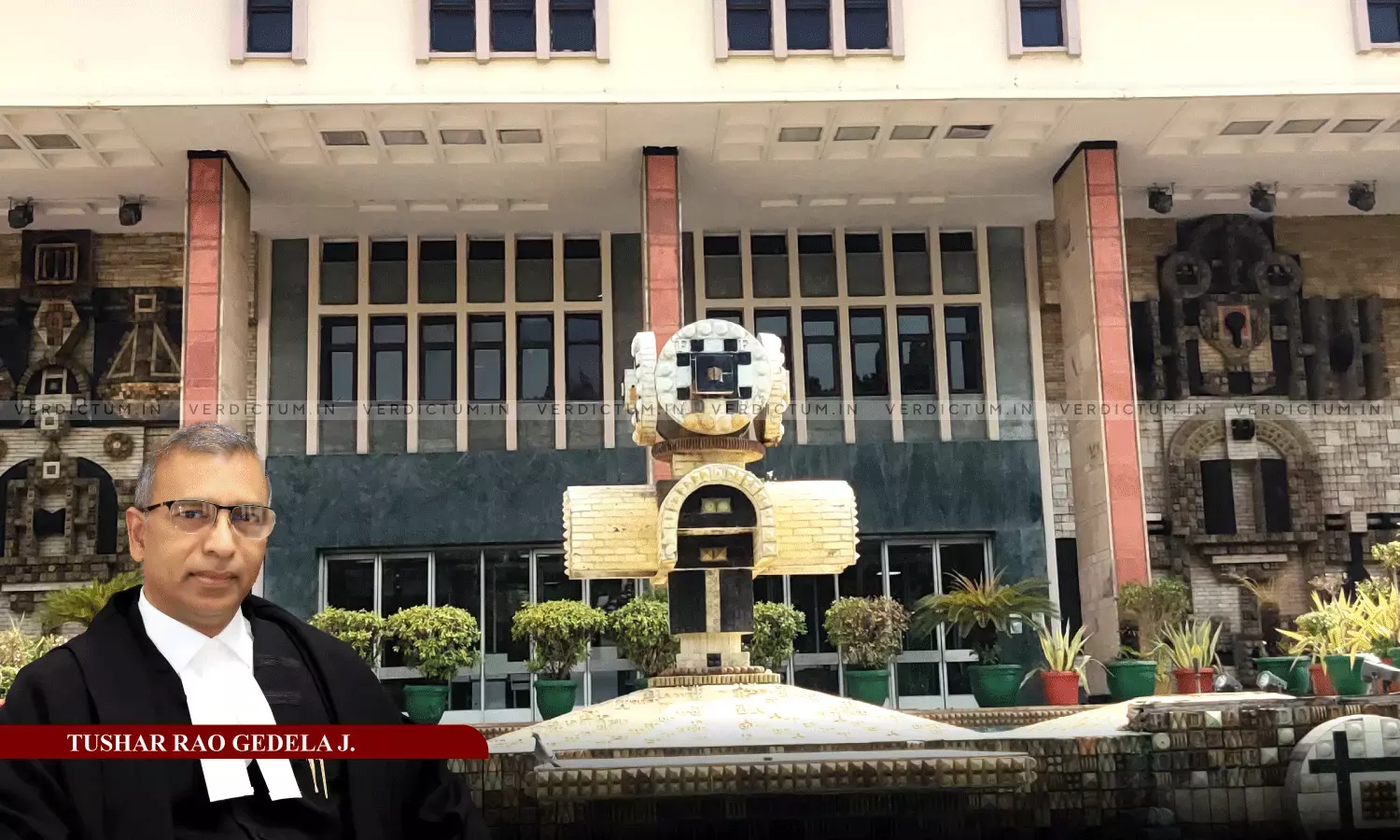Imposing Different Punishments For Two Teachers Of Same University For Identical Allegations Of Plagiarism Is Shocking: Delhi HC

Justice Tushar Rao Gedela, Delhi High Court
The Delhi High Court in a case, said that the two teachers of the same university for identical allegations being imposed two different punishments is shocking to the conscience of the court.
The Court was deciding a case in which a petition was filed by a man who was appointed as a Lecturer at the University and was promoted to the post of Reader.
A Single Bench of Justice Tushar Rao Gedela observed, “The fact that in the present case, two teachers of the same university for identical allegations have been imposed two different punishments, in that “warning” in one case and “dismissal from service” in the other is, to say the least, shocking to the conscience of this Court. This Court is fortified in its view by the judgement of the Supreme Court in Life Insurance Corporation of India & Ors. Vs. Triveni Sharan Mishra reported in (2014) 10 SCC 346.”
Senior Advocate Sanjoy Ghose represented the petitioner while Advocate Aly Mirza represented the respondent.
In this case, as per the procedure followed by the respondent university, its academic employees were asked to prepare the course modules for distribution to the students of the university. It was the case of the petitioner that he was asked to take the responsibility of preparing a part of the course module for the M.A. in English Literature dealing with Australian Literature titled “Jessica Anderson: Tirra Lirra by the River”, to be distributed for the M.A. course of 2001-2002, and was asked to take on the role of the Course Coordinator (without any extra remuneration). He completed the coordination of the contents of the said module and submitted the same to the English Department of the School of Social Humanities of the university. After approval by the Director of School of Humanities, the material prepared by the petitioner was printed by the university and then disseminated to the students.
The petitioner received a letter issued by the Chief Vigilance Officer in which it was stated that he had indulged in the act of plagiarism in preparation of the module. He was further asked to give his comments on the issue within 15 days and hence, he replied to the same stating that the issue of plagiarism is of an academic nature rather than of a pecuniary nature and would not come under the definition of “misconduct”, which term, in any case, was not defined in the Statutes or the Ordinances of the university. Thereafter, when the petitioner was in Yemen, he received a Memorandum by the university that an enquiry was proposed to be held against him. His case was placed before the Board of Management but via an order he was removed from service as a Reader.
The High Court in view of the facts and circumstances of the case noted, “… this Court is of the considered opinion that the petitioner has been able to show disproportionality in punishment imposed upon him. So far as the issue of lack of jurisdiction for entertaining the present writ petition is concerned, Mr. Mirza had relied upon sub-section (2) of Section 8 of the IGNOU Act, 1985 to submit that it provides for a Statutory Appeal against the orders of the Disciplinary Authority which the petitioner failed to avail of.”
Furthermore, the Court said that the language employed in sub-section (2) of Section 8 of the IGNOU Act, 1985 does not clearly stipulate that an employee has a Statutory Appeal available to challenge the order passed by the Disciplinary Authority and that the language to the mind of the Court is not couched in a manner so as to clothe it with the necessary concomitants to conclude that the said provisions stipulate a Statutory Appeal against the Disciplinary Authority’s order in disciplinary matters.
“The language makes it clear that the Visitor has powers which can be exercised also in administrative and financial matters of the University. Other than that, no specific or particular power has been bestowed upon the Visitor as a statutory Appellate Authority to the Disciplinary Authority in matters of disciplinary proceedings involving employees of the University. It may be a different matter that the Visitor or his nominee may be treated as an Appellate Authority, however, no material to reach or differ from such view has been placed on record by the respondent University”, it added.
The Court held that the petition under Article 226 of the Constitution is not completely barred. It said that the petition calls for remand to the Disciplinary Authority for de novo consideration only in respect of the proportionality of punishment imposed and for passing a suitable order.
Accordingly, the High Court partly allowed the petition.
Cause Title- Dr. Ranganatha Nandyal v. I.G.N.O.U. & Ors. (Neutral Citation: 2024:DHC:2450)
Appearance:
Petitioner: Senior Advocate Sanjoy Ghose, Advocates Uri Mohan, and Rohan Mandal.
Respondent: Advocate Aly Mirza


